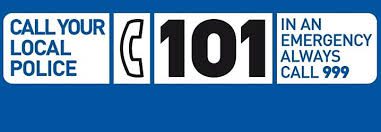STAY SAFE ONLINE
Police Scotland is committed to building safer Virtual Communities for everyone. We want to help young people enjoy the benefits of the Internet by being able to Stay Safe Online, says Police Scotland Community Safety Inspector Stuart Wilson.
“All children and young people need to understand they should only share pictures online that they are happy with friends, family and others seeing. They also need to know how to keep their personal information private and to contact an adult if they feel threatened. This follows a recent case in Dumfries and Galloway which Police Scotland are currently investigating where inappropriate photographic images were put online by a local man who understood he was speaking to a female online. The man has since been contacted with threats that the video clip would be published online unless a sum of money was paid into a named account. Inspector Wilson said “we want people to think about what they share, and to think about the consequences as thousands of children and young people are being bullied, blackmailed or harassed because of photos or video clips they thought were private, went viral and became public.”
Further information about our Stay Safe Online campaign can be found on the Police Scotland website www.scotland.police.uk
Comments, photos and videos you post or share make up your digital footprint, even if you delete it, there is still a record of it.
• Do you really know your online friends? Think about why and how you know people and if you are not friends in real life you shouldn’t be online.
• Never be forced into doing anything you don’t want to do.
• Block people who send cruel or offensive messages and tell someone about it. Also, don’t send them either.
• Don’t open links and attachments from people you don’t know.
• Never arrange to meet someone you have met on the internet.
• Sexting is never a good idea. Once images have been taken and sent to others, control is lost of them and they can end up anywhere. Just think – if you wouldn’t print and pass these images around your school or show them to your mum or dad, then don’t share by phone or other technologies.
• If you receive an indecent image or a naked selfie from someone, do not send this image onto others or respond with one of you – report it.
• Always tell an adult you trust. For more information please visit Choices for Life; Thinkyouknow or Childnet International.
• If you are upset or worried about an image you have sent or received, you can call Childline on 0800 1111, or Police Scotland on 101.
• There are lots of places you can go to get more information and advice. The more people who know the tips the safer we will all be.





